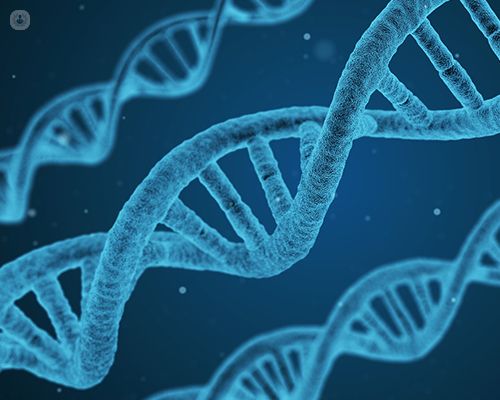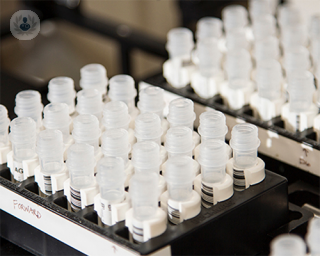BRCA gene
What is the BRCA gene?
The BRCA genes affect the likelihood of which a person may develop cancer. They enable the human body to suppress tumours by producing proteins that correct damaged DNA in our cells.
Mutations of these genes do not give you cancer, but they greatly inhibit the body’s ability to prevent it. They result in tumour suppressing proteins that don’t form or function correctly. This results in a person having more damaged cells with the potential to produce cancer-causing genetic material.

Prognosis
A woman with a mutated BRCA gene will be at risk of the following:
- A much higher risk of developing breast and ovarian cancer compared to women with a non-mutated BRCA gene. This mutation has also been associated with other cancers too.
- It increases a woman’s likelihood of developing breast cancer at a younger age.
- This results in a higher chance that a woman will develop breast cancer a second time.
A man with a mutated BRCA gene will be at risk of the following:
- A slightly higher risk of developing male breast cancer
- A higher risk of developing prostate cancer.
Symptoms of a mutated BRCA gene
There are no visible signs that a person has a BRCA gene mutation. The only way to identify if you have a mutation in BRCA 1 or 2 is to have your DNA tested.
Having a mutation does not guarantee that a person will develop cancer. Many people who have inherited mutations do not realise because either themselves or their relatives have never been diagnosed with cancer.
Medical tests to identify the BRCA gene
A specialist will take a sample of your blood or sometimes saliva and assess your DNA. They will either look for these mutations specifically in BRCA 1 or BRCA 2, or they may asses all genes with mutations that are known to affect the risk of cancer.
What causes a BRCA gene?
Mutated BRCA genes are hereditary. If a relative is known to carry a mutated BRCA gene, their child might carry it too.
Which type of specialist diagnosis the BCRA gene?
A doctor will be able to refer you to an oncologist (they deal with the prevention, diagnosis and treatment of cancers) or a genetic counsellor.










